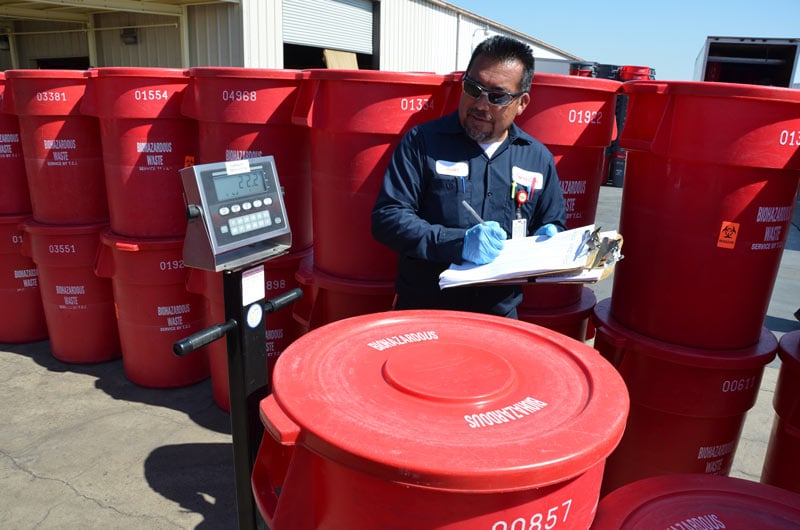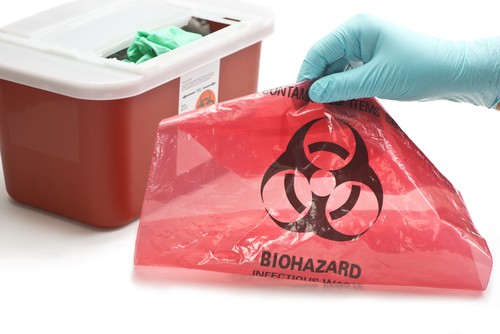Appropriate Disposal Techniques for Clinical Waste
Proper disposal strategies for medical waste are of utmost significance in making sure the security of both health care workers and the basic public. The proper handling and disposal of clinical waste is vital to stop the spread of contagious illness and the contamination of the atmosphere. This consists of the risk-free disposal of sharps, contagious waste, and pharmaceutical waste. Sticking to strict standards established by regulative bodies is vital to keep conformity with legal policies and safeguard public health and wellness. This intro will explore the relevance of appropriate clinical waste disposal, offer guidelines for managing different types of waste, and stress the need for health care centers to take on finest practices. By adhering to these standards, health care companies can contribute to a more secure and healthier environment for all.
Importance of Proper Medical Garbage Disposal
Appropriate medical waste disposal is of utmost significance in order to stop the spread of infections and secure public wellness. Clinical waste refers to any waste generated during medical treatments or from the health care industry.
One of the main factors for correct clinical waste disposal is to protect against the spread of infections. By safely disposing of medical waste, the opportunities of direct exposure to these pathogens are considerably minimized, ensuring the safety of health care workers, individuals, and the neighborhood at big.
Additionally, appropriate medical waste disposal is crucial for safeguarding public health and wellness. By following appropriate disposal methods, such as therapy, containment, and partition, we can reduce the potential dangers associated with clinical waste and safeguard the wellness of the neighborhood.
Handling and Disposing of Sharps
When it involves the handling and disposal of sharps, adherence to appropriate methods is necessary for guaranteeing the safety of healthcare employees and protecting against the danger of injury or infection. Sharps consist of needles, syringes, lancets, and other things with the prospective to penetrate or cut the skin. As a result of their possible to transmit bloodborne virus, such as HIV and hepatitis B and C, it is crucial to dispose and handle of sharps properly.

Disposal of sharps containers should adhere to regional policies and standards (WasteX Medical Waste Disposal). It is essential to never wrap up needles or bend, break, or eliminate needles from syringes. As soon as the container is complete, it should be firmly sealed and thrown away according to local policies. It is best to make use of accredited clinical garbage disposal solutions that concentrate on the proper handling and disposal of sharps to make certain compliance with guidelines and decrease dangers to healthcare employees and the environment.
Guidelines for Infectious Waste Disposal
Healthcare facilities must abide by strict guidelines for the disposal of transmittable waste to prevent the spread of virus and secure public health. Contagious waste, additionally understood as biomedical or biohazardous waste, refers to products that are possibly contaminated with contagious representatives or other unsafe compounds. These products include blood-soaked plasters, used cultures, handwear covers, and specimens. Correct disposal of infectious waste is crucial to make sure the safety and security and well-being of healthcare employees, people, and the general public.
The guidelines for contagious garbage disposal differ relying on the nation and neighborhood laws, yet there are some common practices that healthcare centers need to adhere to. First of all, all transmittable waste should be set apart from various other kinds of waste at the factor of generation. This aids stop cross-contamination and ensures that the waste can be taken care of suitably. Second of all, contagious waste should be kept in watertight, puncture-resistant containers that are plainly identified with the biohazard symbol. When not in use to minimize the threat of direct exposure, these containers ought to be kept shut. Contagious waste ought to be transferred and disposed of by licensed waste administration companies that specialize in managing biomedical waste.
It is very important for health care centers to have thorough training programs in location to inform team on the proper procedures for contagious waste disposal. This consists of training on waste partition, storage space, and handling methods. By complying with these standards, medical care facilities can efficiently handle transmittable waste, lower the risk of infections, and secure public wellness.
Best Practices for Pharmaceutical Waste Disposal
Drug waste disposal need to constantly be performed routinely and according to specialist standards. Correct management of pharmaceutical waste is vital to safeguard public wellness and the setting. Drugs can posture a substantial threat if not taken care of appropriately, as they might infect water resources, damage marine life, or also contribute to the growth of antibiotic resistance.
One of the very best practices for pharmaceutical waste disposal is to develop a marked collection system within medical care facilities. medical waste removal. This system needs to consist of separate containers for different kinds of pharmaceutical waste, such as run out drugs, unused drugs, and contaminated products. These containers need to be plainly classified and situated in quickly accessible locations to urge correct disposal by medical care experts
Additionally, it is important to educate health care personnel concerning the correct handling and disposal of pharmaceutical waste. Training programs need to concentrate on recognizing different kinds of pharmaceutical waste, recognizing the connected risks, and following the ideal disposal procedures. Regular tips and updates ought to be given to make certain conformity with disposal guidelines.
In enhancement to internal methods, healthcare centers need to additionally develop collaborations with accredited waste management firms. These firms concentrate on the collection, transport, and disposal of pharmaceutical waste. By working with these specialists, health care facilities can make certain that their pharmaceutical waste is disposed of safely and in conformity with local laws.
Compliance With Legal Rules
In order to ensure conformity with legal regulations, it is essential for medical care facilities to stick to appropriate disposal techniques for medical waste. Clinical waste presents a considerable threat to public health and wellness and the setting, making it vital for health care facilities to get rid of and deal with of it in conformity with the law.
Regulatory bodies, such as the helpful resources Occupational Safety And Security and Health Management (OSHA) and the Epa (EPA), have actually established guidelines and demands for the correct disposal of medical waste - WasteX Medical Waste Disposal. These guidelines aim to secure medical care workers, waste management workers, and the public from possible threats associated with medical waste

Non-compliance with legal regulations can result in severe consequences for health care centers, consisting of fines, legal liabilities, damages to reputation, and possible injury to public health and wellness. It is important for medical care centers to remain updated with the latest regulations and continually screen and enhance their waste monitoring techniques.
Verdict
Adhering to standards for dealing with and getting rid of of sharps, transmittable waste, and pharmaceutical waste is important. It is crucial that health care facilities preserve stringent methods for the correct disposal of medical waste to lessen threats and maintain a safe health care setting.
Medical waste refers to any waste produced during medical treatments or from the medical care industry. Contagious waste, likewise known as biohazardous or biomedical waste, refers to products that are possibly infected with infectious representatives or other dangerous compounds. All contagious waste needs to be set apart from various other types of waste at the factor of generation. Transmittable waste needs to be transferred and disposed of by accredited waste monitoring firms that specialize in dealing with biomedical waste.
Sticking to guidelines for disposing and managing of sharps, contagious waste, and pharmaceutical waste is essential. (medical waste disposal)